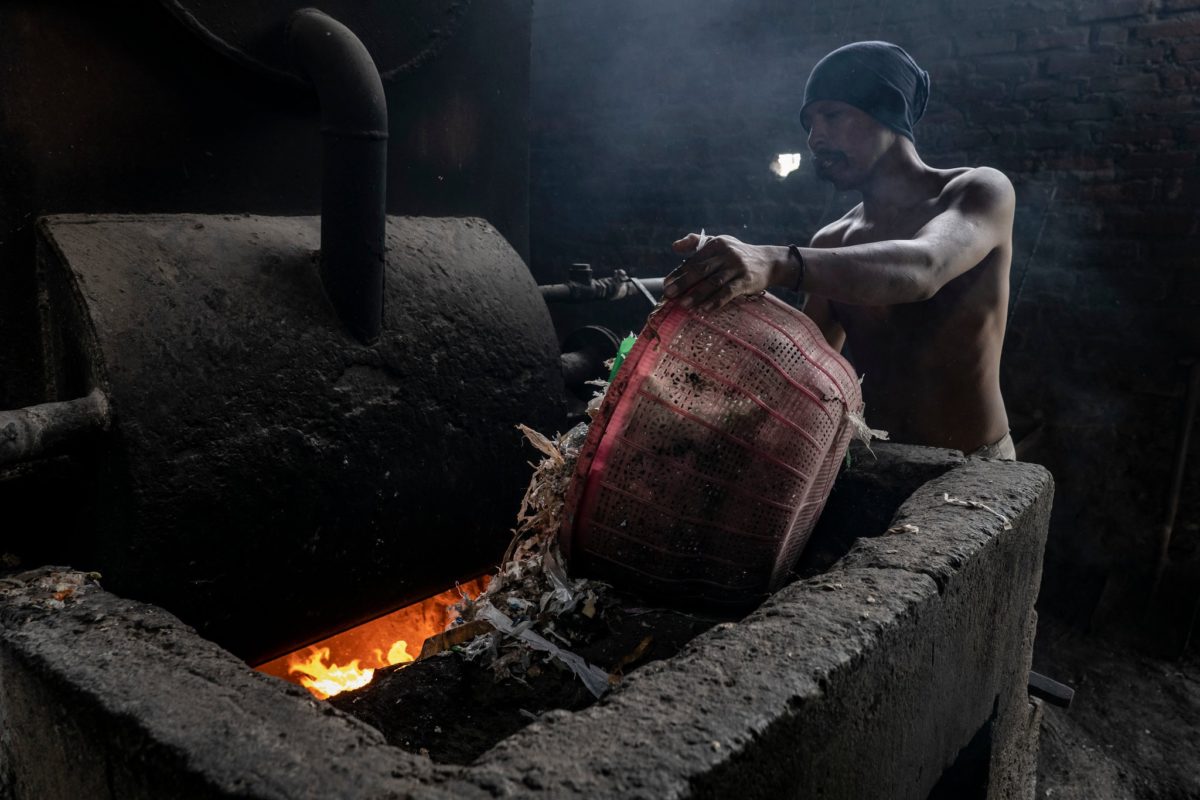
An article recently published in The New York Times discussed a report that found that burning plastic for fuel is poisoning residents in East Java, Indonesia and contaminating eggs and tofu produced by local businesses.
Two Global Greengrants Fund grantees, Arnika and the International Pollutants Elimination Network, helped to produce the study, which found high levels of pollutants in samples collected, including one egg sample that contained the second-highest level of dioxin ever found in Asia. Dioxin is one of the most hazardous known chemicals, leading to cancer, birth defects, and Parkinson’s disease.
In the report, “Plastic Waste Poisons Indonesia’s Food Chain,” researchers describe the collection and analysis of free-range chicken eggs in the communities of Bangun and Tropodo in East Java. Imported plastic waste has inundated these communities since China closed its doors to the world’s plastic waste in 2018. In Bangun, residents burn the piles of plastic waste to reduce the sheer volume of trash clogging streets and piling up around houses. In Tropodo, the plastic waste is used to fuel local tofu factories.
Plastic scrap is entering Indonesia through recycling imports, including paper scrap shipments. In the last three years, the amount of plastic scrap inside paper recycling bundles imported into Indonesia skyrocketed from 2-10% to 60-70%, indicating that paper scrap is being used to conceal plastic waste dumping. The shipments are imported primarily from Australia, Canada, Ireland, Italy, New Zealand, UK, and the US. Bangun and Tropodo are among the impacted villages that are located near the paper companies. They receive more than 50 tons of low-grade plastic every day.
Eggs collected in the communities were found to contain highly hazardous banned chemicals including dioxins, flame retardants, and the toxic “forever chemical,” PFOS. The toxic chemicals are all regulated globally under the Stockholm Convention, a legally-binding treaty administered by the United Nations.
Arnika and the International Pollutants Elimination Network aim to eliminate toxic pollutants worldwide, and with funding from Global Greengrants Fund, have conducted studies and reports, such as this one in Indonesia, to spread information about the prevalence and impacts of toxic pollutants on local communities.
Unfortunately, even after receiving the results of the study, the Indonesian government decided not to ban the burning of plastics, instead calling for a government study to challenge the validity of the original test.
The demand for tofu is down in the region due to the dioxin contamination, but only a few of the tofu makers have switched to wood fuel instead of plastic after learning about the results of the study.
“These stark findings illustrate the dangers of plastics for human health and should move policy makers to ban plastic waste combustion, address environmental contamination, and rigorously control imports,” said report co-author Lee Bell, IPEN Advisor and member of the Stockholm BAT BEP and Dioxin expert group. “It’s clear from the study that plastic pollution imperils human and environmental health not only from the visible deluge of plastic trash, but from the invisible chemical contaminants in plastics and those created when burning plastics.”
